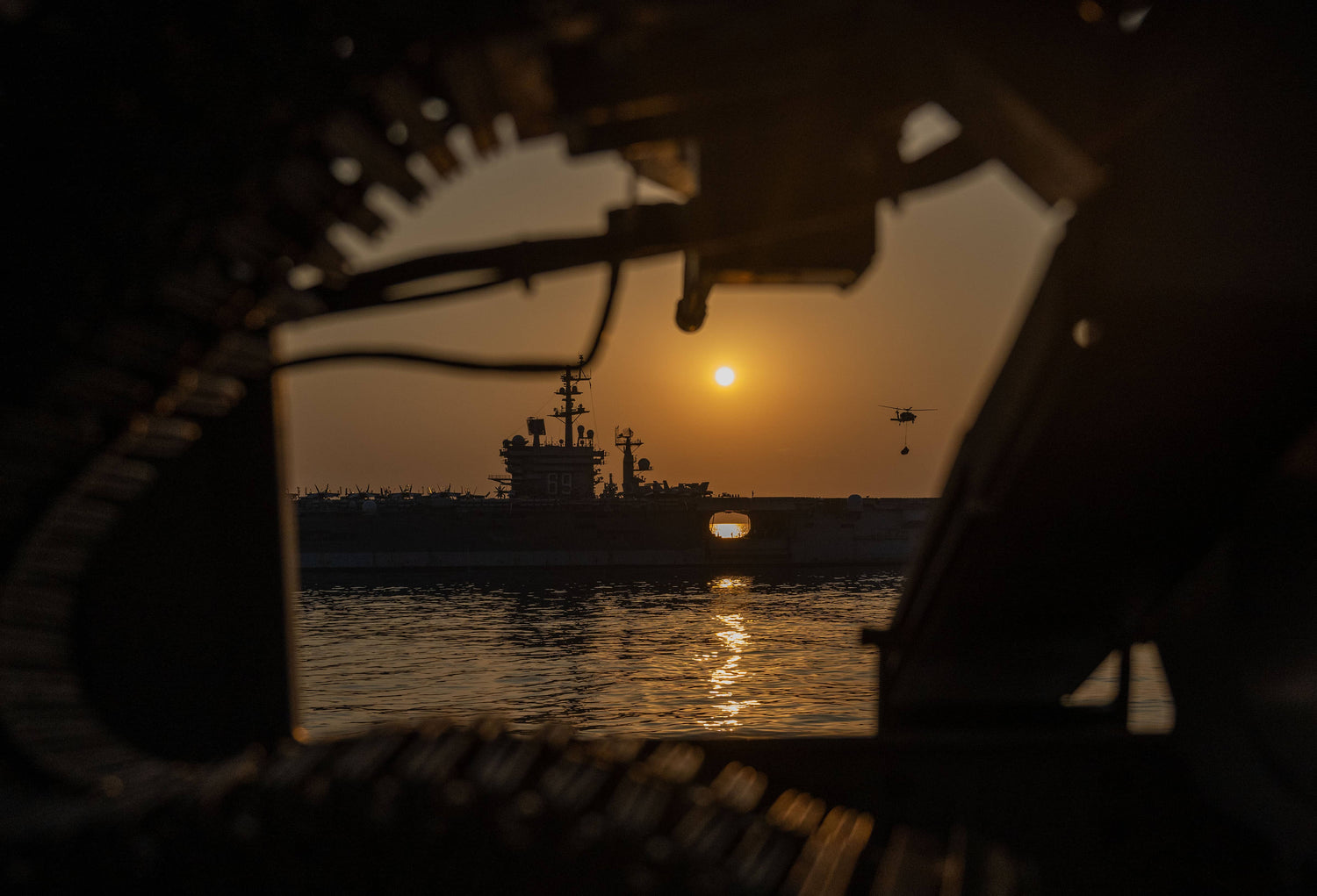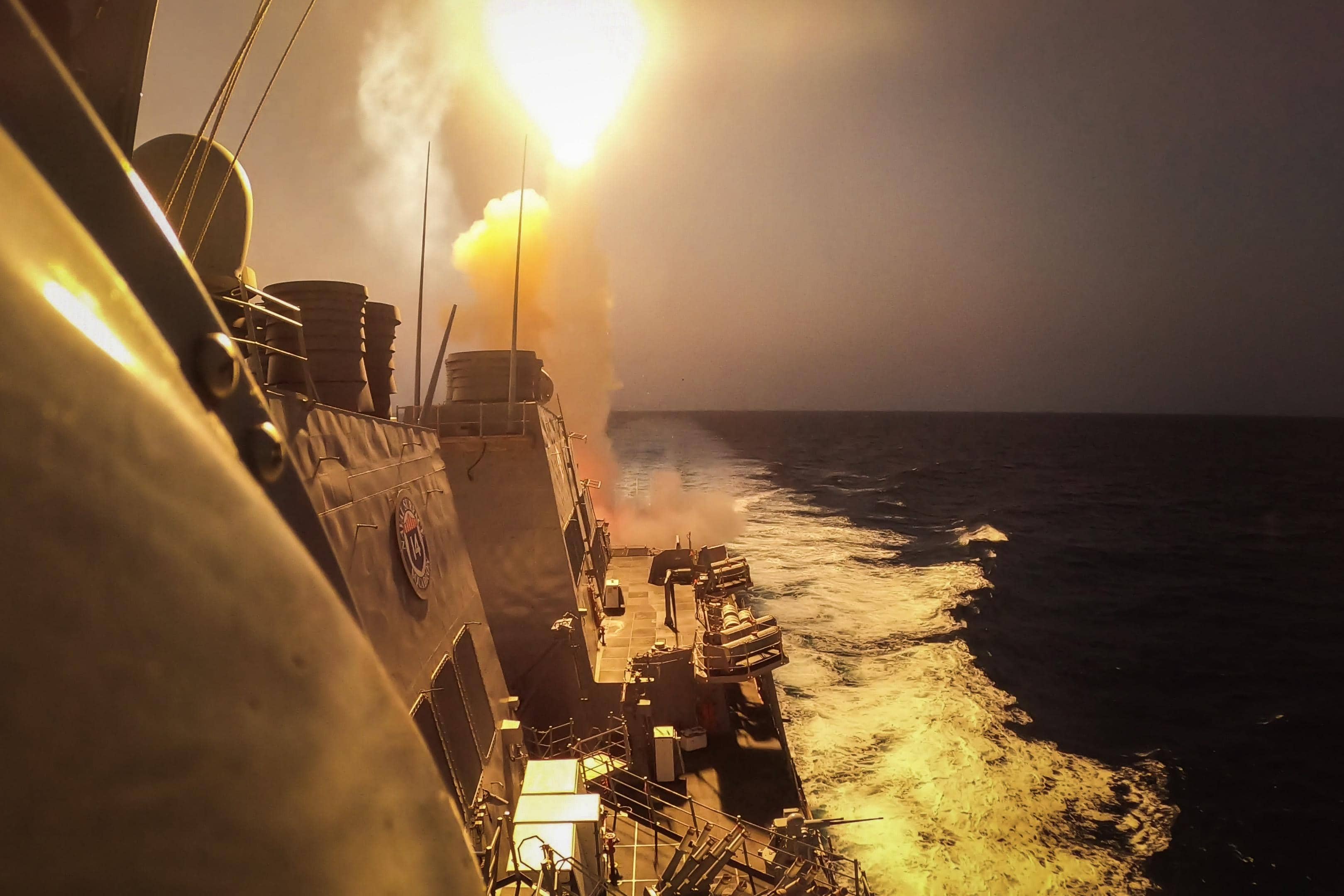240108-N-CK669-1092 RED SEA (Jan. 8, 2024) The Arleigh Burke-class guided-missile destroyer USS Mason (DDG 87) conducts a vertical replenishment with the Nimitz-class aircraft carrier USS Dwight D. Eisenhower (CVN 69) while the ships operate in support of Operation Prosperity Guardian (OPG) in the Red Sea, Jan. 8. Led by Combined Task Force 153 of Combined Maritime Forces, OPG represents a focused, international effort to address maritime security challenges in the southern Red Sea and the Gulf of Aden, with the goal of ensuring freedom of navigation for all countries and bolstering regional security. More than 20 countries are taking part in the operation. (U.S. Navy photo by Mass Communication Specialist 1st Class Chris Krucke)
In recent months, the strategic landscape of the Red Sea has been marked by escalating tensions and military engagements, primarily centered around the actions of the Iran-backed Houthi group in Yemen. The latest series of defensive strikes led by the United States, with support from key international partners, underscores a significant shift in the regional security paradigm. This article aims to dissect these developments, analyzing the implications and strategic objectives behind these operations.
Since mid-November, the Houthi group, known for its insurgent activities in Yemen, has intensified its attacks against commercial vessels in the Red Sea. This surge in hostility has not only threatened international trade but has also raised concerns over maritime security in one of the world's most crucial waterways. The U.S., alongside the United Kingdom, Australia, Bahrain, Canada, and the Netherlands, has responded with precision strikes to neutralize these threats. These operations come in the wake of previous joint strikes on January 11, which targeted the Houthis' military capabilities.
The latest round of strikes, executed on strategic Houthi targets, aims to debilitate the group's military infrastructure. Key targets included an underground storage site and facilities related to the group's missile and air surveillance capabilities. This approach indicates a clear strategy to impair the Houthis' capacity to launch maritime attacks, thus ensuring the safety of commercial shipping in the region.
The Houthis' aggressive stance has had a pronounced impact on global commerce, with more than 14 shipping companies ceasing operations in the Red Sea. This disruption highlights the strategic importance of the region, not just for regional economies but for global trade as well. The U.S. and its allies' actions, therefore, serve a dual purpose: neutralizing immediate threats and maintaining the free flow of commerce along one of the world's most critical trade routes.
In response to the escalating situation, Secretary of Defense Lloyd J. Austin III initiated Operation Prosperity Guardian. Although separate from the defensive strikes, this international maritime task force, comprising forces from over 20 nations, plays a crucial role in ensuring freedom of navigation in the Red Sea and the Gulf of Aden. Operating under the Combined Maritime Forces and Task Force 153, this initiative represents a broader commitment to regional stability and maritime security.
The recent U.S.-led strikes, while focused on military targets, carry broader implications for international relations and regional stability. These actions signal a firm stance against insurgent activities that threaten global trade and maritime safety. The international community's broad condemnation of Houthi attacks and support for the coalition's efforts reflects a collective acknowledgment of the importance of safeguarding these vital maritime routes.
The U.S. and its allies' efforts in the Red Sea region underscore a commitment to de-escalating tensions and restoring stability. By targeting the Houthi group's military capabilities, the coalition aims not just to defend against immediate threats but to set a precedent for the defense of international trade routes. While the situation remains fluid, these coordinated strikes represent a significant step towards achieving lasting peace and security in one of the world's most strategically important regions.





Leave a comment
This site is protected by hCaptcha and the hCaptcha Privacy Policy and Terms of Service apply.